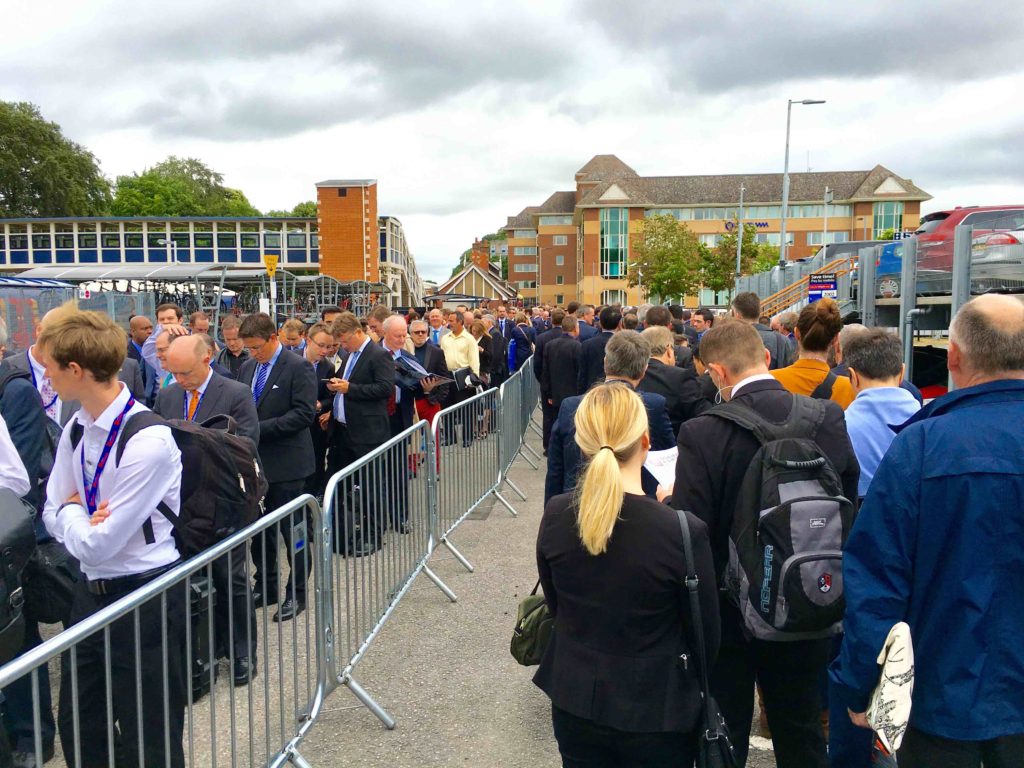
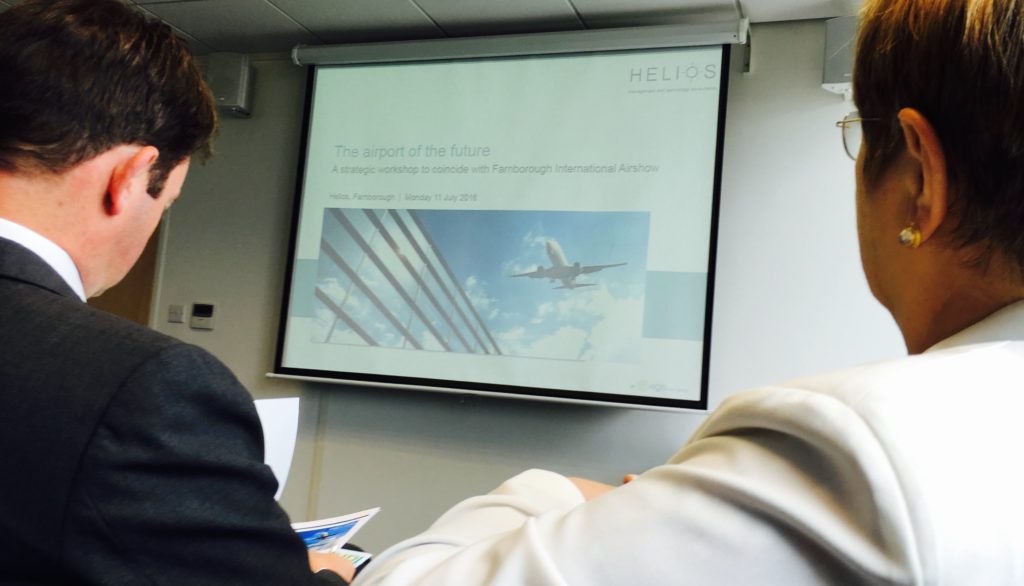
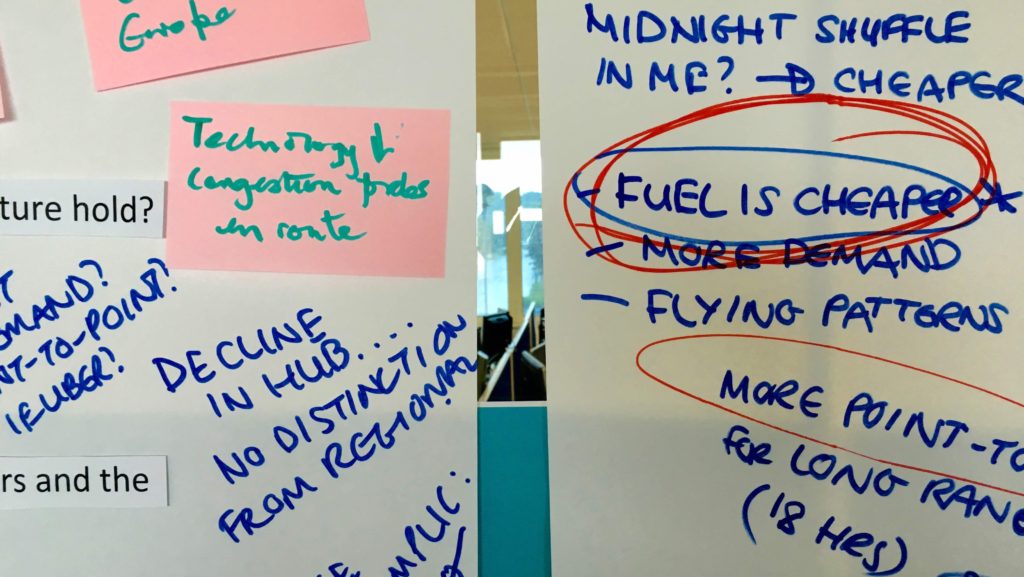
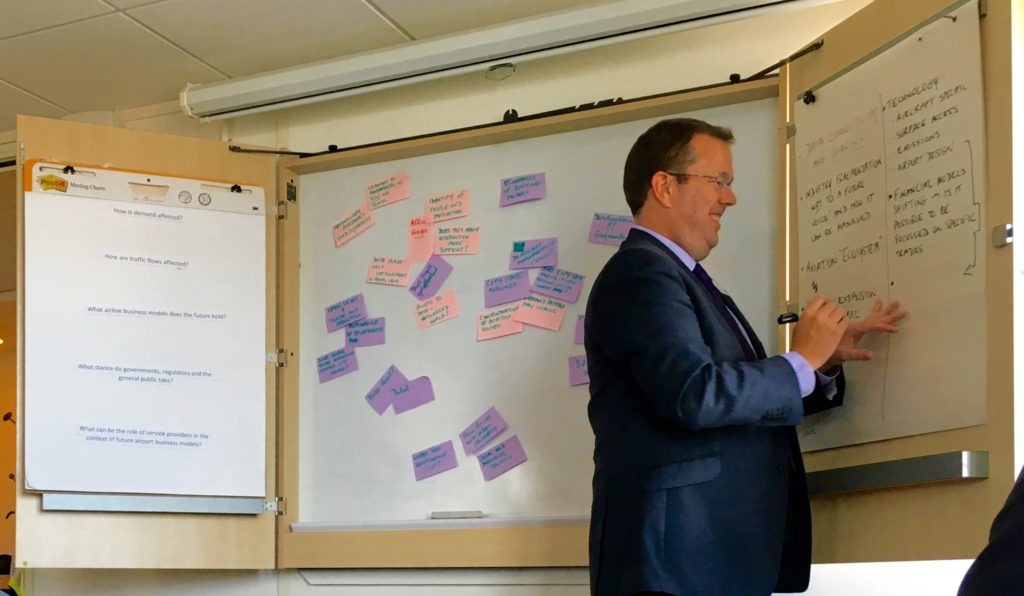
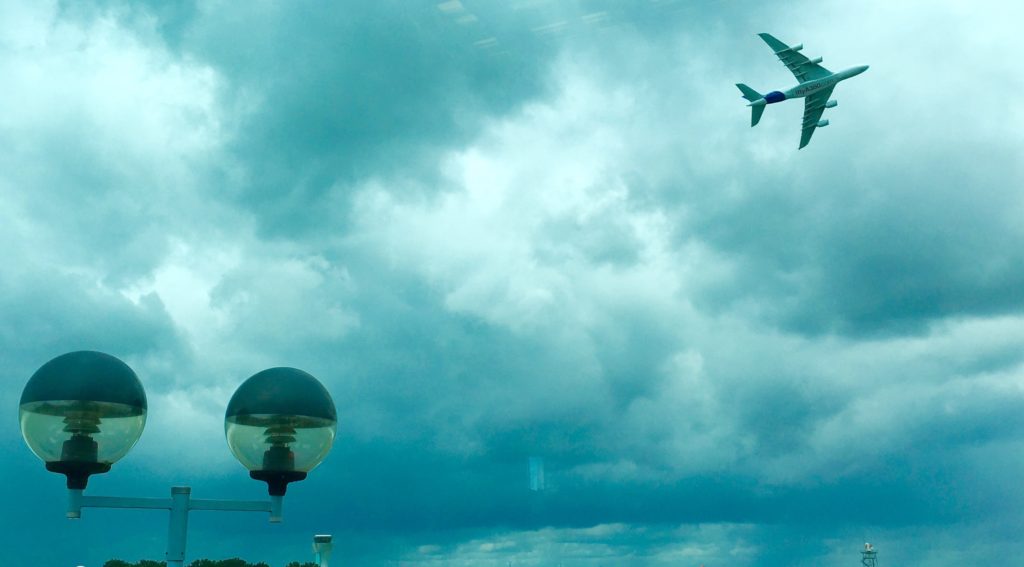
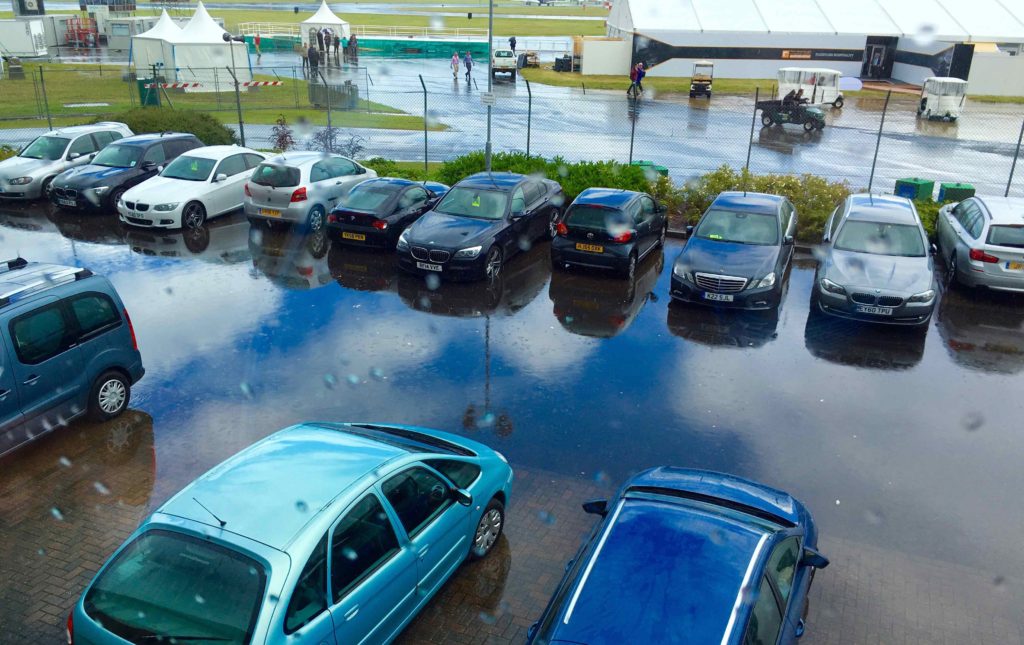
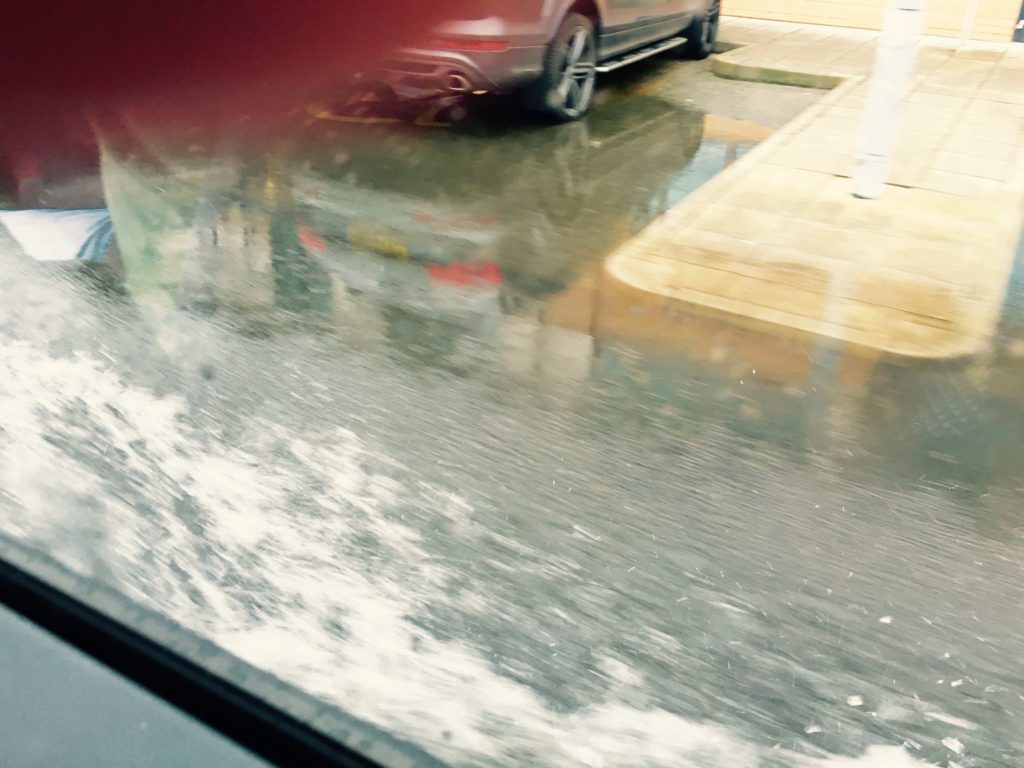

In a serendipitous, synchronous way, an invitation to an event on the ‘Airport of 2050’ had followed a few days after we had an expression of interest from India in our helping inject sustainability principles into a new airport project. So today I took the train south to Farnborough for a Helios event timed to coincide with the 2016 Air Show.
The event proved extremely helpful – and I met a number of people I’d certainly want to follow up with if the project materialises. But the overall impression left by Farnborough and what is billed as the “World’s Greatest Air Show,” was decidedly mixed.
To begin with, trains from London were standing room only, with many people unable to board the train before the one I finally managed to catch. Then when we arrived at Farnborough main station, there were ever-extending lines of hundreds of people waiting for busses to the Air Show. When we finally managed to board an over-heated double-decker, Americans behind me were commenting how shambolic Britain can be at its worst.
Then the shambolism really got into gear. Traffic went glacial, then froze solid. We sat on the bus for what seemed like a lifetime – and then there was a palace revolt. Growing numbers of us insisted on getting off and walking. Only to find that the yellow jacketed marshals were clueless as to the local geography, so little or no help when asked how to get to Hercules Way, which is where I was headed in the drizzle.
Arriving at Helios, I found the reception table still lined with unclaimed badges. The traffic jam had stopped any further busses getting back to the station. I confess I was already wondering whether Farnborough deserved to host such an event? (The Financial Times said a few days back that the Air Show is one of the residual major events the UK hosts – and a rare opportunity to shine …)
Well, thankfully, the Helios event shone – and I learned a good deal. But after a few flypasts, which we watched from picture windows directly overlooking the airfield, the storm clouds closed in – and virtually monsoon-style rain began to fall.
It struck me as I watched the downpour that this could be seen as an earnest of the impact of climate change on tomorrow’s aviation industry. One participant had noted that a warmer atmosphere would mean that planes will experience less lift on take-off, so runways will have to be extended, increasing airport footprints in several dimensions.
Soon the carpark outside, which sported a surprising number of BMWs, was inundated. Guest marquees were also flooded – and the organisers apparently had to switch off the electrics to avert barbecuing the delegates. No sense here of contingency planning.
The air show was promptly curtailed, then cancelled. I decided to head home. I told the cab driver that it had taken me 90 minutes to do the 10-minutes journey from the station earlier in the day. He laughed. Then we ran into the same problems on the return leg. This time it still took over an hour, with floods extending across the road in front of a BMW dealership. The driver said this had happened several times before, but nothing was ever done.
I love aircraft and am fascinated by the future potential of technology in this space. It was a privilege to take part in the Helios event. But I did leave wondering whether this post-Brexit downpour potentially heralded a great unravelling in the UK and its key industries.
The people happiest about Brexit are the losers in the modern world, it often seems, or those who are now parasitic on the system via their pensions, whereas those most upset are those who actually have to earn a living in this modern world of ours.
In addition to the growing competitive pressures from other parts of the world in the aerospace and airport sectors, we will also see growing pressures from intensifying climate chaos – of which today was a small taster.
On the train back to London, which seemed to tiptoe between stations, like something out of an old Flanders & Swann song, The Slow Train, missing several stations that were scheduled, many people were again standing all the way.
David Cameron was in Farnborough today, too, talking about the British economy. “It’s great to be back here,” he said, “because this is the right place to talk about the future for the British economy. Why? Because in the new situation we face, we are going to need to play to our strengths. And the British aerospace industry is clearly one of those greatest strengths.”
If we want the rest of the world to see and believe that, we – and Farnborough in particular – really are going to have to pull up our collective flying socks.

Leave a Reply